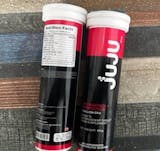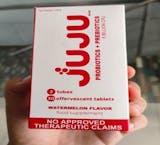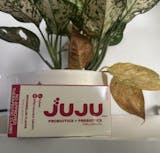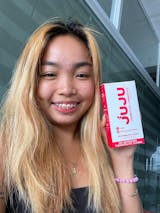Do you find that your nose always seems to be oily, no matter what you do? If you’re one of those who we’re asking “why is my nose oily, then you will know here exactly why.
The skin produces natural oils all the time, which is why it’s important to maintain healthy skin care habits. Oily skin does not mean you need to wash your face more often or take extra care of it — in fact, over-cleansing can dry out your skin even more!
But too much of this oil is a common problem for many people, especially on the nose. In this blog post, we’ll explore the reasons why your nose might be oily and provide some tips for managing it.
IN THIS ARTICLE
08. Conclusion
The Science of Oily Skin
Understanding the fundamentals of oily skin is crucial before we dig into the specific causes of oily noses. Sebaceous glands, located in your skin, secrete sebum, an oily substance. Sebum is an important part of keeping your skin supple and safe from the elements. Having oily skin is a result of an overproduction of sebum by the skin’s sebaceous glands. Excessive sebum can lead to clogged pores and acne.
It’s a sure sign that you have oily skin if you need to use blotting sheets multiple times a day to control the shine. Even after cleansing, oily skin can still feel greasy. Sebum combines with dead skin cells and becomes trapped in pores, raising the risk of acne breakouts.
Hormones, heredity, and environmental factors like humidity can all play a role in determining how much sebum your skin generates. Although oily skin can appear elsewhere on the face, it typically does so on the nose.
Why is My Nose Oily?
The question now is why oily skin is more common around the nose. The first and most obvious explanation is that your nose has more pores than the rest of your face. Hence, they are more likely to become clogged and produce more sebum.
Second, the nose also contains the higher number of sebaceous glands than other areas of the face. And finally, the skin on the nose is thicker than the skin on other regions of the face, which might make it more prone to oil buildup.
While the nose is naturally oily, there are additional variables that can contribute to the condition. If you continually touch your face or wear glasses or sunglasses, the oils from your hands or frames might travel to your nose and add to oil buildup.
REASONS FOR OILY NOSE
Aside from the usual oily nose causes described above, here are some other reasons to consider.
Genetics
Oily skin tends to run in families. If one of your parents has oily skin, you’re likely to have overactive sebaceous glands, too. Hormonal changes, such as those that occur during puberty, pregnancy, or menopause, can lead to increased oil production in the skin.
Weather
While genetics and age are important factors in the underlying reasons of oily skin, where you live and the time of year can also play a role. Individuals in hot, humid climates have oilier skin. In addition, you’re more likely to have oil on your skin in the summer than in the fall or winter.
While you may not be able to pick up and move away due to your oily skin, you can change your everyday routine on hot and humid days. Throughout the day, keep blotting papers on available to remove excess oil. A matte moisturizer or foundation can also aid in the absorption of excess oil.
Skincare Routine
Oily skin can also be caused by using inappropriate skin care products for your skin type. Some people confuse mixed skin with oily skin, and as a result, they may use excessively thick lotions.
If you have drier skin in the winter, you may need to switch to lightweight moisturizers and gel-based cleansers in the spring and summer. Utilizing the proper skin care products can make a significant difference in the amount of oil left on your face.
Also, consider using exfoliators. This is different from body scrub used for your body. Skin in the face is thinner so you should use skincare products that is gentle for the face. Exfoliating at least 3 times a week can help to get rid of oily skin by removing dead skin.
Lifestyle
Poor food, lack of sleep, and high stress levels are all factors that can lead to oily skin. Medication or underlying health issues may also have a role in some circumstances.
Effects of Oily Skin In Nose
Acne
Oily skin is a common contributor to acne, which can appear as blackheads, whiteheads, and pimples on the nose and other parts of the face.
Enlarged pores
When excess oil and dead skin cells accumulate in the pores, they can become clogged and appear larger. The pore size might be bigger than the natural. This is cause of the oil glands that produce excessive oil.
Shiny Nose
Oily skin on the nose can give the skin a shiny or greasy appearance, which some people find unattractive. This is very common not to womens skin but also to mens skin. When you treat an noily nose, this can lessen the shine from the oil from your nose.
Makeup breakdown
If you wear makeup, oily skin on the nose can cause it to break down and become patchy or uneven throughout the day.
Rosacea
It’s a common skin condition that causes blushing or flushing and visible blood vessels in your face. It may also produce small, pus-filled bumps. These signs and symptoms may flare up for weeks to months and then go away for a while.
Discomfort
In some cases, oily skin on the nose can lead to discomfort, such as itching, redness, or irritation. This is particularly true if the oil is accompanied by other skin issues, such as acne or rosacea.
How to Manage Oily Skin on the Nose
If you’re sick of having an oily nose all the time, there are a few remedies for oily nose that you can try. Below are some prevention tips to prevent an oily nose:
-
- Use a gentle cleanser: harsh soaps and washes can strip your skin of its natural oils, exacerbating the problem. Instead, wash your face twice a day with a moderate and gentle cleanser.
-
Apply moisturizers: While many people with oily skin steer clear of moisturizers for fear that their skin will look greasier, using the right moisturizers can benefit this type of skin. For people with very oily skin, an oil-free moisturizer could help keep the skin moist and protected, without it feeling greasy. A 2014 study suggests that aloe vera could be a good moisturizer for treating acne and oily skin.
Certain compounds in aloe vera can have a naturally soothing effect on the skin. The featured article noted that a product should have at least 10 percent aloe in it to be an effective moisturizer. Some people choose to use pure aloe gel for moisturizing, but they need to be aware of hidden ingredients, especially denatured alcohol, which could dry and irritate the skin. This can be done twice daily. Once in the morning and once every night.
- Try an oil-absorbing product: There are numerous items on the market that can help soak up extra oil during the day, such as oil-absorbing sheets or powders that can control shine.
- Use products with salicylic acid or benzoyl peroxide: These ingredients can help to control oil production and prevent acne. Just be sure to use them as directed, as they can be drying if overused.
-
- Oral Supplements: Aside from using products that you directly apply on your face, drinking oral supplements to support your skin care can be helpful. Some of our recommended products are the effervescent tablets from Juju Vitamin C that helps your skin to look healthy. It has Sodium Hyaluronate to hydrate the skin and keep you looking fresh and glowing.
-
- Use Sun Block : Another skin care regimen that is a must is sun block. You can protect your skin from sun damage by using products with at least SPF 50. Too much exposure to UV rays might cause skin problems and can result to oily skin.
-
- Avoid touching your face: Touching your face can transfer oils and bacteria from your hands to your skin, leading to clogged pores and breakouts. Frequent touching your face might also cause skin irritation especially the skin around the nose. When the skin is irritated this can cause dark spots. You don’t just have a nose so oily but also other skin concerns.
- Consider seeing a dermatologist: If your oily skin is severe or accompanied by other skin issues, it may be worth seeing a dermatologist for a professional evaluation.
- Try a clay mask : Add a clay mask to your skin care routine a few times a week. These masks include ingredients like bentonite and salicylic acid which draw out oils from your pores.
-
- Try a honey mas: Honey has antibacterial and antiseptic properties that can help clear acne and control oil production. Massage natural, raw honey into your nose. Allow the honey to sit on your nose for 10 minutes and then rinse. You can also try products with honey and almonds. This combo is known to have good benefits to skin. You can also include this in your diet.
- Stay hydrated: Keeping your skin hydrated can also fight excess sebum production. When your skin is dry, your glands compensate by producing more oil. Drink plenty of water and spray your skin with primer water to combat dryness.
- Watch your diet: Your diet can affect your skin more than you realize, especially if you love spicy foods. These dishes cause blood vessels to dilate and trigger perspiration, increasing the appearance of a shiny, oily nose. Limit eating spicy food to once a week.
When to Seek Professional Help
While most cases of oily skin can be managed with home remedies for oily nose, there are some situations where professional help may be necessary. For example, if your oily skin is accompanied by severe acne or other skin conditions, a dermatologist may be able to recommend prescription treatments to help you get the problem under control.
Frequently Asked Questions
How can I prevent my nose from becoming oily throughout the day?
- Wash your face every day with a gentle cleanser.
- Apply moisturizer and toner after washing your face to add hydration and minimise the appearance of pores.
- Don’t wear heavy makeup and remove makeup before bed.
- Choose oil-free makeup that doesn’t add extra oil to your face.
Are there any medical conditions that can cause oily skin on the nose, and when should I seek medical help?
Seborrhoea (or seborrhea) is the name given to excessively oily skin. It is due to overactive sebaceous glands and can affect both males and females. The oil produced by the skin is called sebum.
How can I prevent oil production on my nose, and is it possible to eliminate it completely?
Apply moisturizer and toner after washing your face to add hydration and minimize the appearance of pores. Don’t wear heavy makeup and remove makeup before bed. Choose oil-free makeup that doesn’t add extra oil to your face. Exfoliate your skin to remove dead skin cells and prevent dryness.
Can an oily nose lead to other skin problems?
An oily nose can increase the risk of developing other skin problems such as acne, blackheads, and enlarged pores. This is because the excess oil can clog pores and create an environment for bacteria to thrive, leading to breakouts and other skin issues. It’s important to keep the skin clean and well-moisturized to help prevent these issues.
Conclusion
If you have oily skin on your nose, know that you are not alone. Many people experience frustration and discomfort as a result of an oily nose. You can manage the problem and enjoy smoother, healthier-looking skin by recognizing the reasons for oily skin and taking actions to resolve them.
There are many ways to manage excess oil production and enhance the overall appearance of your skin, whether you’re dealing with heredity, hormones, or environmental factors. If you’ve ever wondered, “why is my nose oily?” know that it’s not the end of the world and that there are ways to help you achieve the healthy, balanced skin you deserve.










